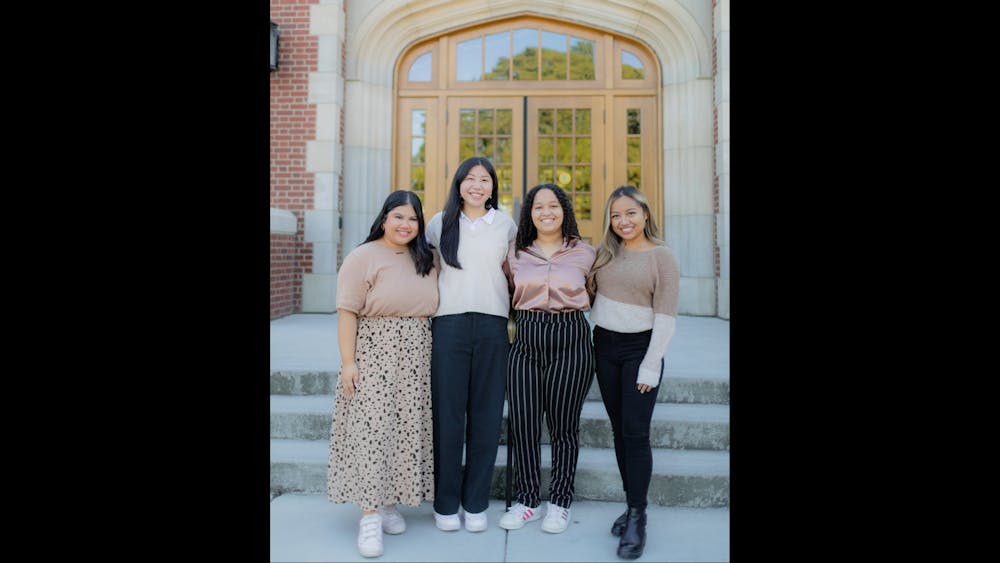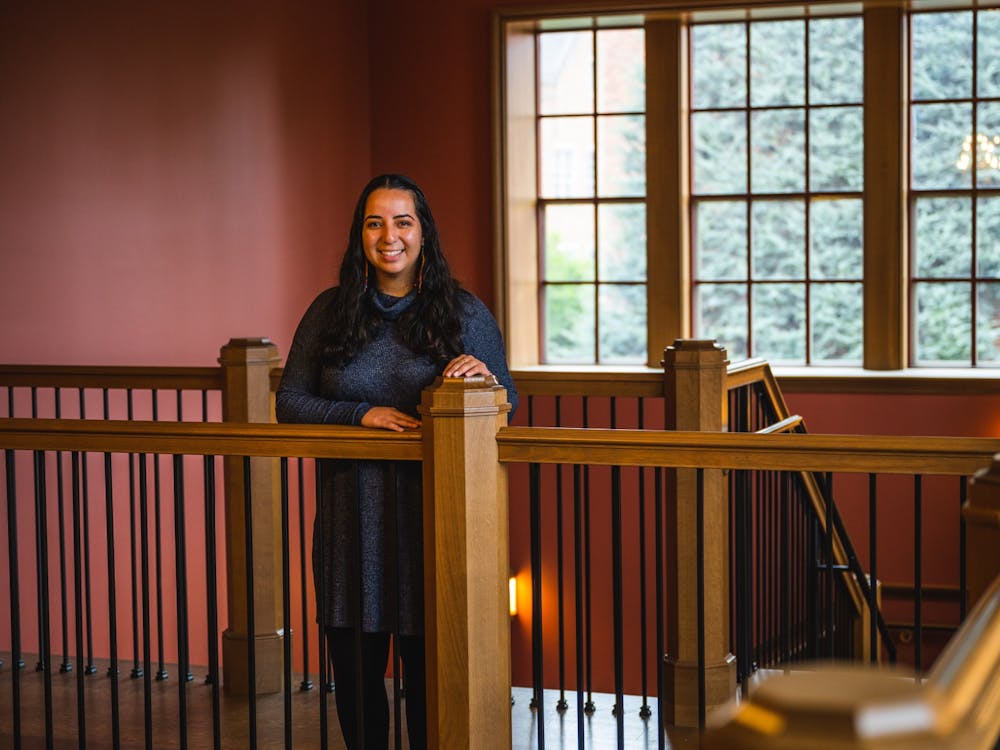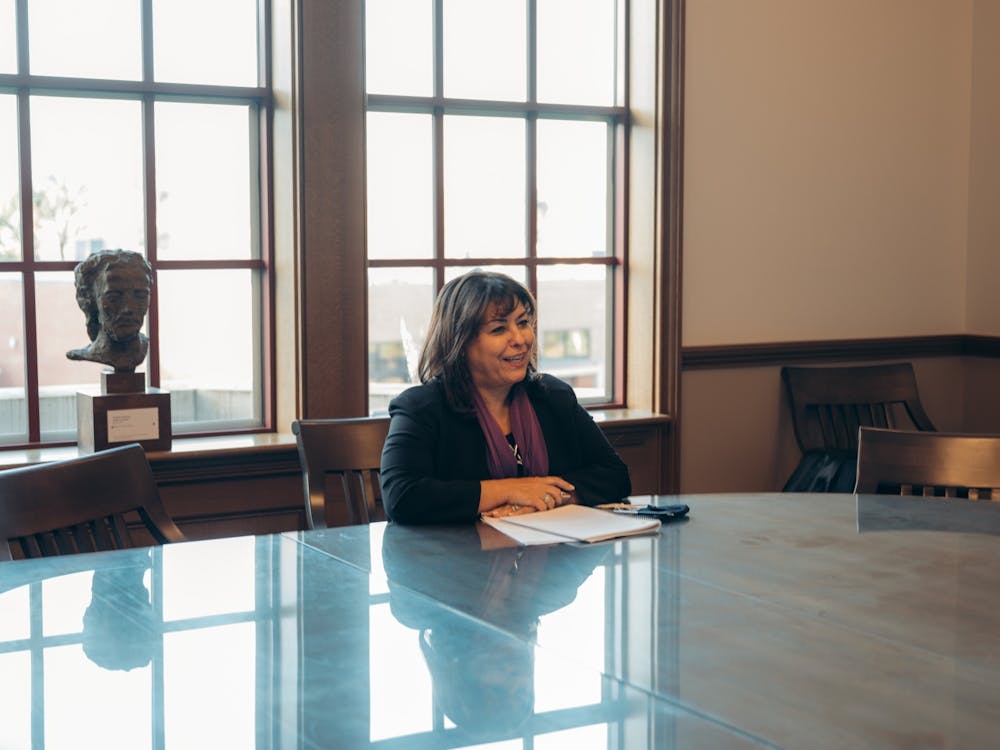Being a Diversity Collaborator has come with the privilege of curating collaborative spaces and the opportunity to advocate for minoritized communities; however, it has also come with great burden. We are a team of four women of color supervised by Yuri Osorio Hernández, another woman of color. Our supervisor, Yuri, has dedicated five years of advocacy for minoritized students and staff. However, our institution has a recurring pattern of overworking and mistreating QTBIPOC students and staff like our supervisor. This continuous harm has pushed Yuri, and many others, into leaving the University and exemplifies how the University mistreats minority students and staff.
In this written piece, we will elaborate on our own experiences in being students and women of color that are involved in DEI (Diversity, Equity, Inclusion) work at the University of Portland. We have outlined our collective demands to the University’s Presidential Leadership Cabinet.
My name is Jayla Fernandez, and I have been a Diversity Collaborator for the past three years. Working with Yuri in the Diversity and Inclusion Programs, I have found that our “department” is severely understaffed and under-resourced. Our community always sees the product of our efforts, but they do not see the hard work and emotion that goes on behind the scenes for these events to play out. We have a budget that has not been increased since it was established two decades ago. Yet, the University demographic has changed drastically in the last two decades. Despite 53% of students identifying as students of color, DIP is still tasked with serving said students with an outdated budget. In addition, DIP’s funding and resources decreased this year.
We tried our hardest to still make an impact on this campus, so we overcompensated by putting our mental health on the line and overworking ourselves to carry out the best events possible. The harsh reality is that we cannot support our students and faculty members in the way they deserve and need with the limited resources we have. If anything, DIP should receive the same amount of effort from UP as we give to our student population and UP Community.
My name is Peytynn Kubo, and I run DIP’s social media and marketing. I have not only had the incredible opportunity to work in promoting events, but have also worked alongside an amazing team of women of color and various cultural clubs and organizations here at UP. It’s important to recognize that we are students first and foremost, working towards a degree and putting in this work because our University won’t. This work is rewarding, yet incredibly taxing at the same time.
We want our student leaders to be recognized and better supported for the amazing work they are doing and have that reflected through acts such as compensation and sufficient resources to operate in our respective departments. As undergraduate students, our time at UP is limited. If the foundation of DEI work relies heavily on students, it is not sustainable and reflective of an institution that is wholeheartedly creating an inclusive environment for its students. We need more transparency in the work that is being done, along with concrete spaces and figures on campus that students can comfortably confide in.
My name is Ndemoh Sesay and I have been a Diversity Collaborator for this past year. Students on this campus are facing burnout. Students who feel passionate about issues are stepping up and doing the work they want to see done. As students, we have classes, exams, projects, internships, and other commitments. Students are passionate about improving the school. However, the passion students have can only make it work for so long, and the way this program is operating now is not sustainable. With limited resources, time, and institutional support, students are faced with feelings of guilt and disappointment in themselves as a result of this undue burden.
Our institution relies on the passion, empathy, hard work, and power of their students (primarily women of color) knowing that these students will go above and beyond what is asked and required of them because they care. University students are only here for four years. The culture of the university is largely created by the institution that is here long after students have graduated. My biggest encouragement to students is to get involved as early as possible in what you are passionate about changing on campus. The institution takes advantage of the revolving door of students and puts off making real change until the students who called for it have graduated and the pressure to take action is gone. (at least until the next round of students show up at their door).
My name is Adeline Paguirigan and I have been a Diversity Collaborator for this past year. An additional University sector that LGBTQIA+ and BIPOC students are often a part of are DEI committees. DEI (Diversity, Equity, Inclusion) centered committees have catalyzed some of the most important changes on campus to date, which are not limited to but include the following: creating an Ethnic Studies Program, getting DIP relocated from the Student Activities space, having a search advocate program that creates an intentional hiring process and calls out bias in the hiring process, the creation of more DEI committees like in the School of Nursing, and the expansion of the Diversity Center. These committees often rely on students and staff of minoritized identities. As exemplified in committee work, students with minoritized identities are spearheading the work — leaving administrative leadership unaccountable and unscathed. Further, while student/staff committee members are curating new ways to intentionally support the various minoritized communities on campus, they are doing this on an already full plate. Despite the extensive workload, there is no existing funding from our institution to support the additional compensation for faculty and students in DEIJ committee work. The only support students receive are words of praise, which is not enough to compensate for the burnout, burden, and emotional toll experienced by a lot of students.
Our Demands For The President’s Leadership Cabinet:
- Intentional mentorship for Women of Color on campus that supports professional and personal growth.
- Increasing DIP’s budget (that has not been touched in 20 years) and intentionally investing in the expansion and structure of DIP
- Developing a Director position
- Creating multiple coordinator roles to accommodate various programs and communities which include but are not limited to:
- UP Connections
- Communities of color
- LGBTQIA+ community
- Stock UP
- DEIJ trainings
- Diversity Dialogues
- Affinity groups
- Scholarships
- Diversifying leadership positions in administration; not only specific to roles pertaining DEIJ but also in critical decision-making spaces for the University as a whole.
- More accessible opportunities for town halls and listening sessions for students and faculty.
Our Future with DIP
With our supervisor Yuri leaving, and the current lack of projected University support in sustaining DIP and supporting DIP student leaders, we have genuine fear and concern for our program’s future.
Peytynn: As Yuri and our team managed to produce and maintain trainings, engaging events, and keynote presentations, we were stretched incredibly thin and working out of an understaffed department and budget. I leave this role dishearteningly, not due to the work we’ve done, but in the University’s continuous lack of support for marginalized students and leaders. Invest in DIP. Invest in our community.
Ndemoh: I started in this role because I saw the work that the Diversity and Inclusion Program was doing on campus and wanted to be a part of the powerful work I was benefitting from. I saw how difficult it is to do DEI work and how often it feels like the whole institution is working against you. I plan to continue with my work as a Diversity Collaborator until the end of this spring semester, but will take my time in the summer to reflect and see if I will continue into next year.
Adeline: The recent departure of Yuri and the treatment of Women of Color on campus is a difficult reality that I am continuing to navigate and process. However, supporting my community has always been a grounding experience for me. Holding these two realizations in mind, I plan to continue to be a part of DIP in support of my minoritized community, but will reevaluate my role as a Diversity Collaborator at the end of this spring semester.
Jayla: I will be departing from DIP as I feel that I have put extensive work into my role in creating Stock UP in addition to multiple cultural events and have not received the recognition of my work. The lack of resources have led to burnout in multiple instances, affecting our physical and mental health. There has been a consistent pattern of overworking ourselves and overall lack of recognition and support from the institution. Although I loved the work I have done, I recognize the importance of establishing boundaries to protect my identity and growth as a woman of color.
Jayla Fernandez (she/her) is a senior nursing major at UP. She can be reached at fernajay22@up.edu.
Peytynn Kubo (she/her) is a senior organizational communication major at UP. She can be reached at kubo23@up.edu.
Ndemoh Sesay (she/her) is a junior mechanical engineering major at UP. She can be reached at sesay23@up.edu.
Adeline Paguirigan (she/her) is a junior nursing and social work major at UP. She can be reached at paguirig22@up.edu.
Have something to say about this? We’re dedicated to publishing a wide variety of viewpoints, and we’d like to hear from you. Voice your opinion in The Beacon.








